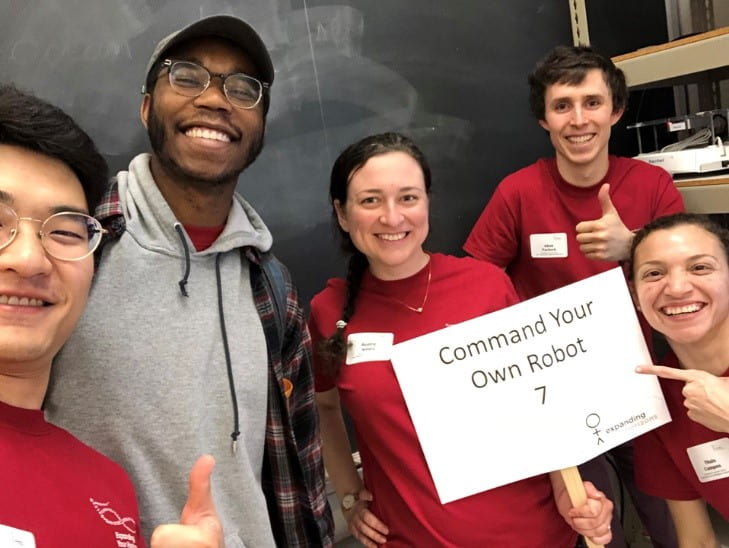Prologue
Teaching is a calling. It’s a calling that can be awakened at different points in one’s experience. But once awakened; evidence-based teaching practices must be cultivated. Part art and mostly science, the research that informs the best teaching practices is as wide and diverse as any. When a passion for teaching finds itself lodged in the heart of a creative, critically thinking, Engineering graduate student, it is incumbent upon us to provide a network of increasingly responsible leadership opportunities to help illuminate that path. Cornell engineers who find themselves with such a passion have opportunities in the College (ELI) to begin their leadership growth, and the University (CTI) to practice and broaden those skills. The path is not easy and it’s not always clear, as the authors of these 4 vignettes confirm. The best teaching applies the same practices as great leadership. These leaders of tomorrow need networks, expanding opportunities, and mentors. These inspiring stories show that it can be done, and that we have begun to build institutional networks and collaborations that benefit graduate students like these.
Celia A. Evans, Ph.D., Associate Director, Engineering Learning Initiatives (ELI)
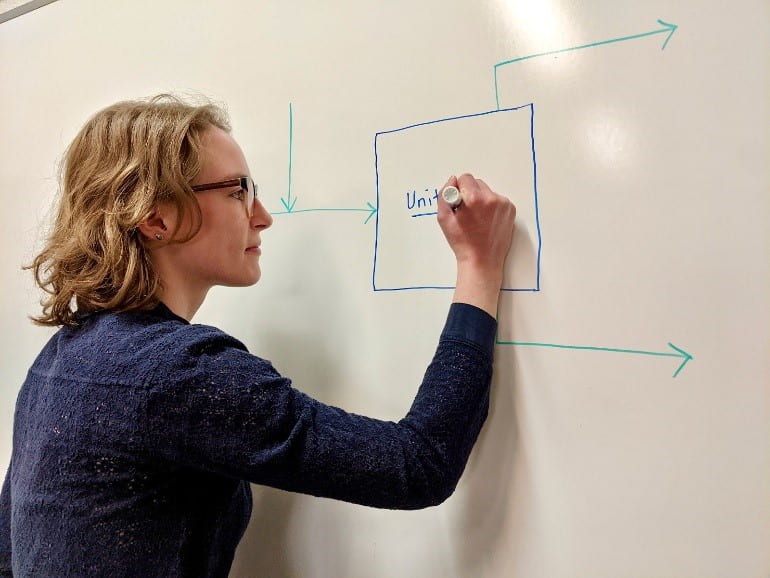 Colleen
Colleen
My first TA position in graduate school was the spring semester of my first year. While trying to settle into my research group and take a class of my own, I was also supposed to help third year engineering undergraduates learn the difficult subject of Process Dynamics and Control, and it did not go well. Unlike when I was a TA as an undergraduate, these students did not know me, and I could have better expressed what my role was within the teaching team. My undergraduate department was smaller than the chemical engineering school at Cornell, with only six main faculty members, which created a close community. I always appreciated my undergraduate professors, and a potential career in academia is part of the reason I went to graduate school, but I did not comprehend how much prep work they had to do before class to be effective!
As a graduate TA, my responsibility was assisting with homework, which required reviewing textbook sections, completing the assignment, and thinking through where the trouble spots would be for the students. This small aspect of the course still took several hours per week. The sentiment for graduate students is often that research is the only priority, and being a TA is not an opportunity, but a burden. This perspective is damaging to the undergraduates, who have unprepared or apathetic TAs, and to the graduate students, who do not realize that being a TA is a chance to learn a subject more deeply, practice effective communication, connect with others, experience being in a position of authority, learn management skills, and test information retrieval to answer unexpected questions, among other things. These skills are all transferable, because there are teaching opportunities in every career, such as mentoring, engaging with clients, and presenting to multidisciplinary teams. Once I realized this, I embraced being a TA and pursued more opportunities to learn about best practices for pedagogy.
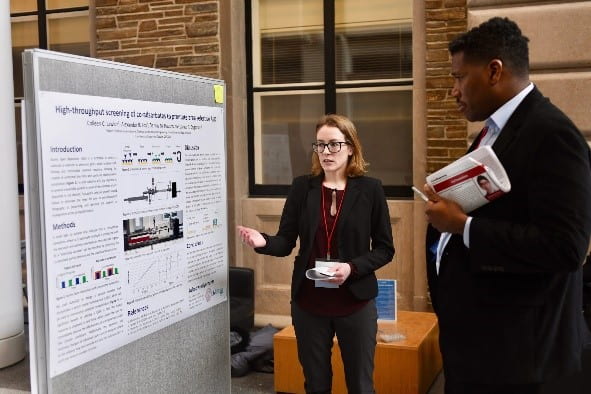 This led me to seek out the CTI Fellowship and the ALS 6015 ‘Teaching in Higher Education’ course. Developing teaching portfolio components for these programs was a great exercise, because it showed me how my perspectives on teaching and diversity in the classroom are really based on my everyday interactions with people. I am seeking a position in industry as a next step, but I know that I am better prepared because of my experiences with teaching in graduate school.
This led me to seek out the CTI Fellowship and the ALS 6015 ‘Teaching in Higher Education’ course. Developing teaching portfolio components for these programs was a great exercise, because it showed me how my perspectives on teaching and diversity in the classroom are really based on my everyday interactions with people. I am seeking a position in industry as a next step, but I know that I am better prepared because of my experiences with teaching in graduate school.
Doğa
A few years ago, my friend asked me to take an online course in teaching with her. I had TA-ed once before—instructed labs, graded, held office hours—and gotten “good” evaluations from students. I said “yes,” not because I thought I needed to take the course, but because I like learning new things. However, that course showed me, a person who always thought of themselves as a “good” teacher, that I knew nothing about teaching. I also learned that not knowing may be okay as a graduate student, but if I wanted to be a better teacher, I needed to learn more.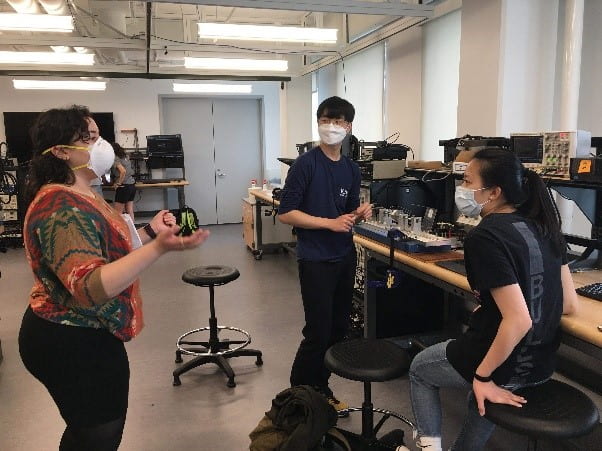
My teaching style, until this point, had been similar to those of my undergraduate professors: mainly, uninterrupted lecturing. I realized that the only reason I graduated college is because I was able to learn from the “traditional instruction” style, which is not how everyone learns, or should learn. In fact, studies show that students learn best when they actively interact with the material and through a variety of ways (videos, readings, examples…). The more I learned about teaching, the more I wanted to learn; I attended several of CTI’s GET SET Workshops and took more courses. In the end, I have decided to get a teaching-related job when I graduate.

As an engineering PhD student, what will put my job application ahead of other candidates is the teaching knowledge and experience that I have developed. I had already covered the former, but getting enough experience was challenging. At an R1 university, it is sometimes hard to get as many quality teaching opportunities as we want, simply because we are expected to spend most of our time doing research. For this reason, in addition to TA-ing every semester, I applied to ELI’s Teaching Assistant Development and CTI’s Fellowship Programs.
In these programs, I have had the opportunity to develop my own teaching workshops and train both graduate and undergraduate TAs using state-of-the-art education research. One thing I am very grateful about being a part of Cornell’s teaching community is the help and feedback I receive. For example, I was TA-ing and taking the Engineering Teaching Seminar (ENGRG 6780) course in Spring 2020, when all teaching had to transfer to online. It is a reflection-based course, and every week, I was reflecting on some aspect of my teaching I was struggling with. The instructor’s kindness and guidance helped me tremendously, and I went through that semester learning more about teaching than at any other time in my life.
Jason
I will never forget my first graduate teaching memory at Cornell. During my first year in the biomedical engineering PhD program, I served as the graduate teaching assistant (TA) for an undergraduate Thermodynamics course. Despite having years of undergraduate teaching experience, I remember the disaster that was giving my first lecture. I was deriving equations for a ‘Carnot cycle’ problem when a student pointed out a mistake. I froze up and did not recover, largely due to the anxiety that was imposter syndrome fueled with having an entire classroom’s eyes watching my every move. It was a completely different environment than what I was familiar with back at my undergraduate institution.
 As an undergraduate TA, I was used to facilitating peer learning sessions for dozens of my classmates, many of whom I knew from other on-campus activities. When I was the graduate TA for Thermodynamics, I struggled with learning how to effectively navigate the new power dynamic with the students in my course while concurrently adjusting to a new state, institution, and lab environment!
As an undergraduate TA, I was used to facilitating peer learning sessions for dozens of my classmates, many of whom I knew from other on-campus activities. When I was the graduate TA for Thermodynamics, I struggled with learning how to effectively navigate the new power dynamic with the students in my course while concurrently adjusting to a new state, institution, and lab environment!
Coming into Cornell, I knew that I was primarily interested in pursuing a tenure-track faculty position with a focus on both research and teaching. However, it was at that moment in the classroom when it genuinely seemed (to me) that I was not fit to teach in academia and that I might need to find a new career path. As dramatic as that was, it was truly a humbling experience that led me to seek out CTI, first as a participant of the Teaching Portfolio Institute, and now as a CTI Fellow to further expand and refine my pedagogy.
Attending the Teaching Portfolio Institute genuinely transformed 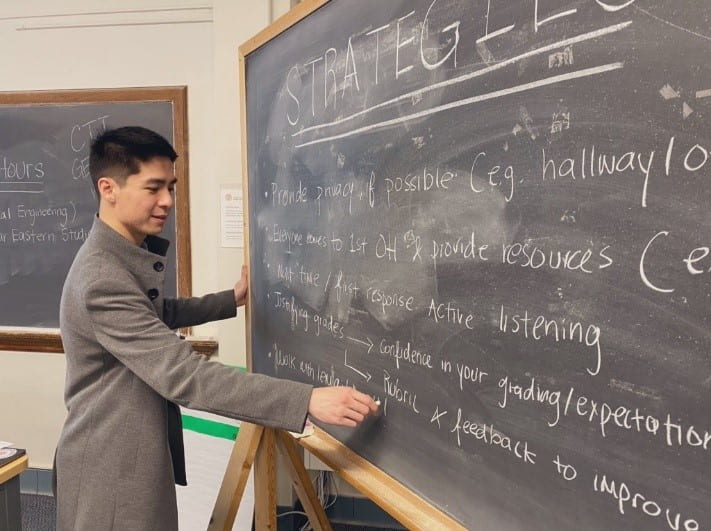 my perception of what teaching in higher education could look like. Designing a syllabus, crafting teaching philosophy and diversity statements, curating a teaching portfolio—all of these components were new concepts to me as a second-year PhD student at the time. However, the exposure and advice I received from the institute facilitators, all of whom spanned various disciplines across Cornell, motivated me to apply for the CTI Fellow program and became instrumental in helping me identify an action plan and seek out additional resources to further my training with the long-term goal of becoming a tenure-track faculty member.
my perception of what teaching in higher education could look like. Designing a syllabus, crafting teaching philosophy and diversity statements, curating a teaching portfolio—all of these components were new concepts to me as a second-year PhD student at the time. However, the exposure and advice I received from the institute facilitators, all of whom spanned various disciplines across Cornell, motivated me to apply for the CTI Fellow program and became instrumental in helping me identify an action plan and seek out additional resources to further my training with the long-term goal of becoming a tenure-track faculty member.
Thais
In my third semester as a PhD student at Cornell, I was assigned as a Teaching Assistant for the Feedback and Control Systems class. I was responsible for conducting Discussion sections, in which I summarized key points of the lectures and answered questions from the students. Even though I had previous experiences teaching science and engineering to undergraduates and high schoolers in my home country, Brazil, this was my first time teaching in English. I learned English by watching YouTube videos and, therefore, I was not confident about my communication skills. As the semester here at Cornell went by, I realized that no matter which country I was in, class I was teaching or language I was speaking, all the students trusted me to teach them something new and important. It was my job to give them my best and fulfill their expectations.
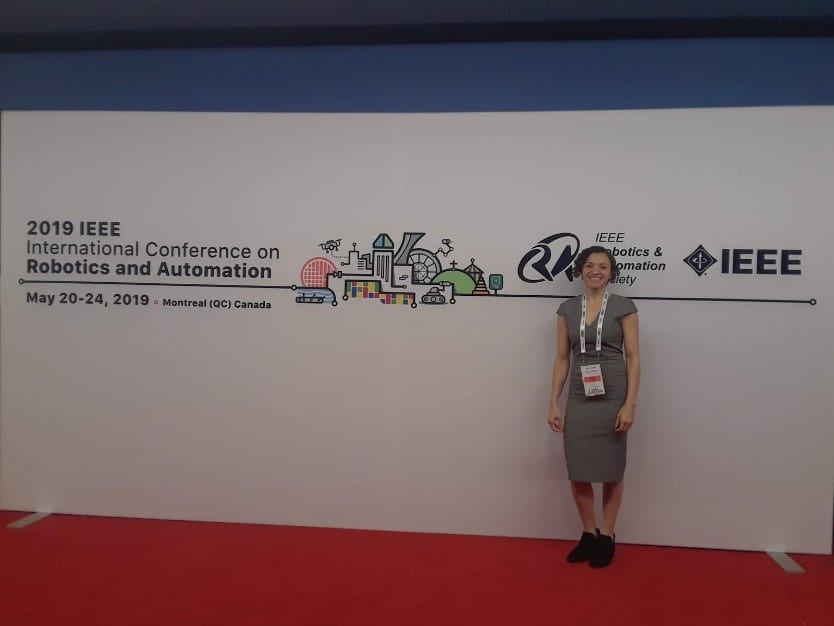
So every day before the sessions, I would practice what I needed to say to the students by myself. I worked as hard as the students to help them understand the difficult concepts of this class. At the end of the semester, I was awarded the Sibley Prize for Excellence in Graduate Teaching Assistance based on feedback from students. I was thrilled by such recognition and decided to improve even further my teaching and communication skills by becoming a CTI fellow. Organizing the workshops and participating in the meetings as a CTI fellow has helped me to better communicate a variety of subjects to a diverse audience. I particularly enjoy interacting and networking with grad students from different fields during these events. It is refreshing to hear and learn from people with different backgrounds and interests other than mine.
Epilogue
These diverse voices showcase how varied, yet similar, teaching experiences can be even within the same college. The Center for Teaching Innovation (CTI) Fellows are passionate about teaching and engage with their peers across campus to explore innovative teaching practices. This passion is evident in these four CTI Fellows. What began with Engineering Learning Initiatives’ (ELI) training to be successful TAs in their discipline, has clearly been transformative. Their diverse teaching and learning experiences in their engineering departments led them to seek out additional support through ELI and CTI graduate programming to further develop their teaching skills. This culminated in their interest in joining the CTI Fellows Program to learn more about teaching, mentoring and leadership through their work with graduate students and postdocs from across campus. Each of these stories share a common thread of exploring the various opportunities available at Cornell. By taking advantage of an opportunity to network with their peers from across disciplines, these four fellows have begun an exciting journey in their professional development as future leaders in their fields.
Derina S. Samuel, Ph.D., Associate Director, Center for Teaching Innovation (CTI)
